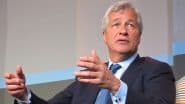New Delhi, Dec 14 (PTI) A 'Nehru development model', inevitably produced a 'Nehru foreign policy' and "we seek to correct that abroad", just as efforts being made to "reform" the consequences of the model at home, External Affairs Minister (EAM) S Jaishankar said on Saturday.
In a virtual address at the launch of the book 'The Nehru Development Model' by former NITI Aayog vice chairman Arvind Panagariya, he also said the author suggests that former prime minister Jawaharlal Nehru's choices set India on a "deterministic path".
"The model and its accompanying narrative permeated our politics, the bureaucracy, of course, the planning system, the judiciary, the public space, including the media, and most of all teaching," the Union minister said.
Jaishankar said both Russia and China today "unambiguously reject" the economic assumptions of that period, which they did more than anyone else to propagate. Yet, these very beliefs "appear to live on" in influential sections of our country even today.
"Certainly after 2014, there has been a vigorous effort towards course correction, but the author does assert with good reasons that it still remains an uphill task," he added.
In his address, the minister further said "A Nehru development model inevitably produced a Nehru foreign policy. We seek to correct that abroad, just as we try to reform the consequences of the model at home."
In fact, the "resistance" to one is based on an "attachment" to the other, Jaishankar argued and said the two need to tackled as an "integral whole".
He began his address by quoting a famous line by an American policymaker on India's independence.
"In 1947, John Foster Dulles famously declared, I quote, 'In India, Soviet Communism exercises a strong influence through the interim Hindu government'. He of course, could not have been more wrong about ascribing that adjective to the then government. But, more relevant, this was an assertion that for decades was treated as a geopolitical over-reaction of American policy makers to an independent India," he said.
The EAM said that over these years, he has often asked himself whether Dulles was altogether wrong on this matter. "And, in Prof Panagariya's book, I found a substantial answer to that concern."
"We all know that there was a strong ideological drive to advance a particular economic model for an India that has just gained freedom. The belief that was propagated was modulated from time to time, but never fundamentally changed," Jaishankar argued.
It's root cause was an analysis that the only counter to imperialism lay in socialism, he said.
Not just in general terms, but one particular paradigm that was centred around heavy industries. For that reason, the author actually characterised it as a 'Nehru Development Model', the minister said in his address.
The paradox, however, is that for more than three decades now, there's actually been a "national consensus that this development model eventually failed the country", he said.
Yet, there is a "reluctance to confidently explore alternatives".
"As a result, we end up doing the reforms we must, rarely the reforms we should," the EAM said.
The minister underlined there is no question that India has benefited from greater openness in the last 33 years. But, the situation today is very much "more complex" than before.
"We live in an era of weaponised economics, one that throws up question as to what exactly we are exposing abroad and to whom," he said.
The key concepts today are therefore less of openness and more of resiliency, reliability, and "I would even say, of trust", the EAM added.
Openness with caution is perhaps a recommended approach, he asserted.
On Atmanirbharta, he said that it should not be taken as a "synonym for protectionism".
"It is actually a call to think and to act for ourselves, as much as it is to ensure national security," Jaishankar said.
(This is an unedited and auto-generated story from Syndicated News feed, LatestLY Staff may not have modified or edited the content body)













 Quickly
Quickly

















